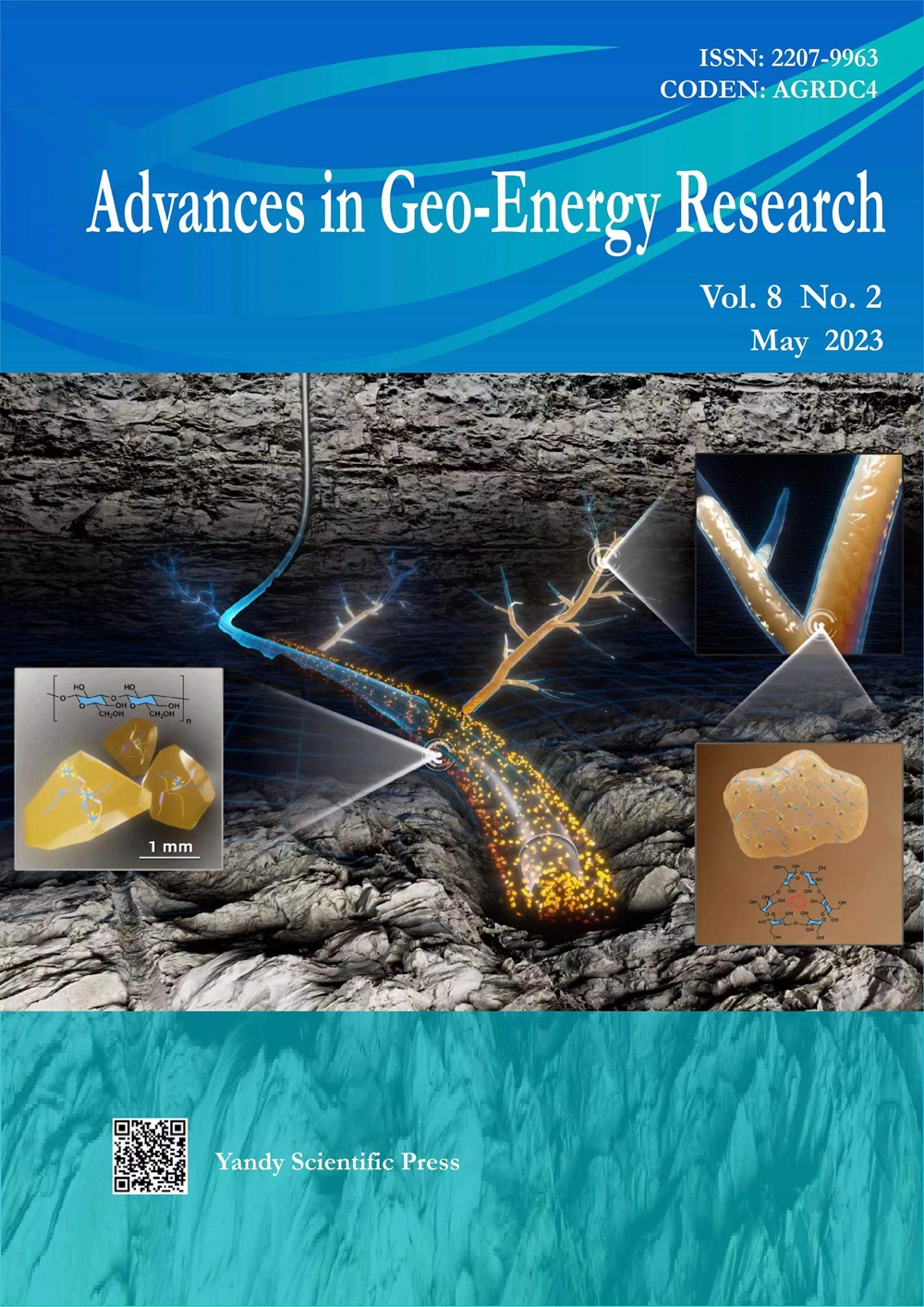Effect of nanoparticles on phase behavior of surfactant-oil-water system: An application in multiphase flow system
IF 10
1区 地球科学
Q1 ENERGY & FUELS
引用次数: 4
Abstract
: This paper experimentally investigates how adding nanoparticles to Soloterra surfactant affects phase behavior and surfactant flooding. These experiments include three phases. In phase one, phase behavior tests are conducted on surfactant solutions to choose the compatible nanoparticle. Phase two entails measuring interfacial tension between the stable nanoparticle + surfactant solutions and hydrocarbon. In phase three, a series of micromodel flooding tests are conducted to experimentally study the possibility of enhancing oil recovery. A possible relationship between static phase behavior and dynamic fluid flow is studied to evaluate the effects of nanoparticles on surfactant solutions. The results of the phase behavior experiment show that Soloterra 964 is compatible with Al 2 O 3 and Cu 2 O. Moreover, the Soloterra 964 + copper oxide solution can help observe all three Winsor types. The interfacial tension test results show that adding nanoparticles to solutions leads to lower interfacial tension. The results of micromodel flooding experiments indicate that adding surfactant and nanoparticle to the injected solution leads to higher breakthrough time and oil recovery. In addition, type III flooding produced a less stable displacement pattern than types II-and II+.纳米颗粒对表面活性剂-油水体系相行为的影响:在多相流体系中的应用
:本文通过实验研究了在Soloterra表面活性剂中添加纳米颗粒对相行为和表面活性剂驱油的影响。这些实验包括三个阶段。在第一阶段,对表面活性剂溶液进行相行为测试,以选择相容的纳米颗粒。第二阶段需要测量稳定的纳米颗粒+表面活性剂溶液和碳氢化合物之间的界面张力。在第三阶段,进行了一系列微模型驱油试验,以实验研究提高采收率的可能性。研究了静态相行为和动态流体流动之间的可能关系,以评估纳米颗粒对表面活性剂溶液的影响。相行为实验结果表明,Soloterra 964与Al2 O3和Cu2 O相容。此外,Solotera 964+氧化铜溶液可以帮助观察所有三种Winsor类型。界面张力测试结果表明,在溶液中加入纳米颗粒会降低界面张力。微模型驱油实验结果表明,在注入溶液中加入表面活性剂和纳米颗粒,可以获得更高的穿透时间和采油率。此外,与II型和II+型相比,III型洪水产生的位移模式不太稳定。
本文章由计算机程序翻译,如有差异,请以英文原文为准。
求助全文
约1分钟内获得全文
求助全文
来源期刊

Advances in Geo-Energy Research
natural geo-energy (oil, gas, coal geothermal, and gas hydrate)-Geotechnical Engineering and Engineering Geology
CiteScore
12.30
自引率
8.50%
发文量
63
审稿时长
2~3 weeks
期刊介绍:
Advances in Geo-Energy Research is an interdisciplinary and international periodical committed to fostering interaction and multidisciplinary collaboration among scientific communities worldwide, spanning both industry and academia. Our journal serves as a platform for researchers actively engaged in the diverse fields of geo-energy systems, providing an academic medium for the exchange of knowledge and ideas. Join us in advancing the frontiers of geo-energy research through collaboration and shared expertise.
 求助内容:
求助内容: 应助结果提醒方式:
应助结果提醒方式:


